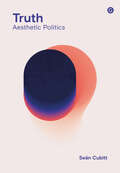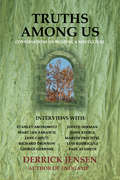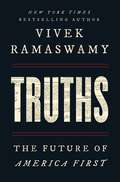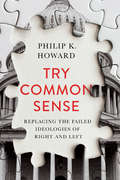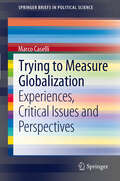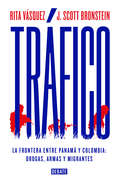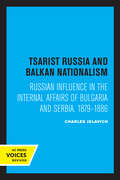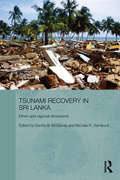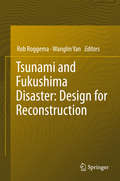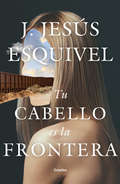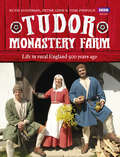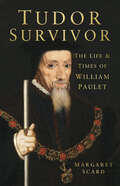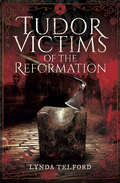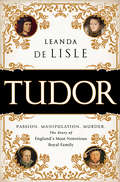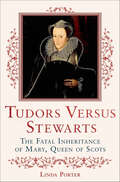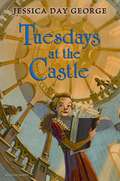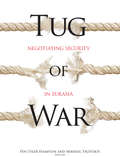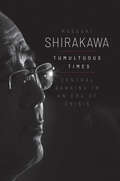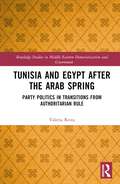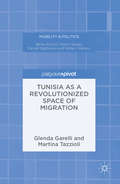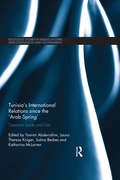- Table View
- List View
Truth: Aesthetic Politics
by Sean CubittEcologies of truth in a post-truth era.The problem with Neo-Nazis is not that they don&’t trust the media but that they trust them too much. White supremacists are absolutely convinced by their supremacy. They distrust technologies and climate change as much as the global poor because, as white Europeans, they believe they are exempt from exploitation. This book argues that the only truths possible in the 21st century are mobile, inventive practices involving everything European models of communication exclude: technologies, nature, and leftover humanity. Tracing histories of their separation, Truth analyzes the struggle between the new dominance of information systems and the sensory worlds it excludes, not least the ancestral wisdom that the West has imprisoned in its technologies. The emergent cybernetics of the 1940s has become the dominant ideology of the 21st century. Truth opposes its division of the world between subjects and objects, signals and noise, emphasizing that there can be no return to some primal Eden of unfettered exchange. Instead, these divisions, which have fundamentally reorganized the commodity form that they inherited, are the historical conditions we must confront. Drawing on a wide range of aesthetic practices, from literature, film, art, music, workplace media, scientific instruments, and animal displays, Truth seeks out ways to create a new commons and a new politics grounded in aesthetic properties of creativity, senses and perception that can no longer be restricted to humans alone.
Truths Among Us: Conversations on Building a New Culture (Flashpoint Press)
by Derrick JensenFrom acclaimed author Derrick Jensen comes a prescient, thought-provoking collection of interviews with 10 leading writers, philosophers, teachers, and activists who argue against society's belief that corporations and governments know what is best for the future, instead choosing to help acknowledge the values we know in our hearts are right—and inspire within us the courage to act on them. Among those who share their wisdom here are acclaimed sociologist Stanley Aronowitz, who shows that science is but one lens for discovering knowledge; Luis Rodriguez, poet and peacemaker, who suggests embracing gang members as people instead of stereotypes; Judith Herman, who offers a deeper understanding of the psychology of abusers; Paul Stamets, who reveals the power of fungi that is often ignored; and writer Richard Drinnon, who reminds us that our spiritual paths need not be narrowed by the limiting mythologies of Western civilization. Reaching toward a common goal of harmony with the world surrounding us all, these diverse voices articulate different yet shared visions of activism.
Truths: The Future of America First
by Vivek RamaswamyAuthor, accomplished entrepreneur, and former presidential candidate Vivek Ramaswamy has a plan to save America, and it begins with telling the truth. <P><P> Today’s conservatives know what they’re against. They’re anti-woke, anti-globalist, anti-big government. But what exactly do they stand for? The fact that this is a hard question to answer is a damning indictment of the modern Republican Party which has abjectly failed to articulate an affirmative alternative to the left’s vision. Ramaswamy calls on the conservative movement to articulate exactly what it stands for, or else warns of another illusory “red wave” in 2024. <P><P> Vivek Ramaswamy is not a politician. He is a first generation American, the founder of several successful companies, and a bestselling author. Ramaswamy decided he needed to step in the arena to stop the lies and tell the American people the truth. That’s why he ran for president and became a leading voice in the America First movement. <P><P> In Truths: The Future of America First, Ramaswamy shows exactly how honesty about the most important issues will get our country back on track. The America First movement emphasizes the issues that bring us together, not what divides us. It asks that we put our country over politics, merit over grievance, and truth over lies. Ramaswamy tells us the truth about our political system, and the people who control it, and exhorts us to exercise our right to self-governance again. <P><P> America First is bigger than any man or woman. It’s a movement. In Truths, Vivek Ramaswamy explains exactly why that movement needs to succeed now more than ever. Our country’s future depends on it. <p> <b>New York Times Bestseller</b>
Try Common Sense: Replacing The Failed Ideologies Of Left And Right
by Philip K. HowardAward-winning author Philip K. Howard lays out the blueprint for a new American society. In this brief and powerful book, Philip K. Howard attacks the failed ideologies of both parties and proposes a radical simplification of government to re-empower Americans in their daily choices. Nothing will make sense until people are free to roll up their sleeves and make things work. The first steps are to abandon the philosophy of correctness and our devotion to mindless compliance. Americans are a practical people. They want government to be practical. Washington can’t do anything practically. Worse, its bureaucracy prevents Americans from doing what’s sensible. Conservative bluster won’t fix this problem. Liberal hand-wringing won’t work either. Frustrated voters reach for extremist leaders, but they too get bogged down in the bureaucracy that has accumulated over the past century. Howard shows how America can push the reset button and create simpler frameworks focused on public goals where officials—prepare for the shock—are actually accountable for getting the job done.
Trying to Measure Globalization
by Marco CaselliThe aim of this book is to conduct a critical survey of the main tools devised for the synthetic measurement of globalization processes. To this end, the first part of the book discusses the meaning of the concept considered, highlighting the different and often contradictory interpretations put forward in its regard in the literature. Subsequently analysed are the passages and issues that must be addressed when constructing an instrument intended to measure a social phenomenon of such complexity as globalization. Stressed in particular is that the researcher's subjectivity is repeatedly involved in these passages, so that no instrument can have objective validity. Given these premises, the book presents the principal tools employed in attempts to measure globalization, starting with those whose unit of analysis is the state. In this regard, particular space is devoted to indexes which take a multidimensional approach to the concept of globalization. There follows a comparison among the results obtained using these indexes, and criticisms are made of the ways in which the latter have been constructed. A limitation, or if one wishes a paradox, concerning such tools is that they measure in relation to states a process which has as one of its principal features the fact that it extends beyond the confines of states. For this reason, the final chapter considers whether globalization can be measured with different units of analysis - in particular people and cities. The books concludes with discussion of the general limitations of globalization indexes.
Tráfico: La frontera entre Panamá y Colombia: drogas, armas y migrantes
by Rita Vasquez J. Scott BronsteinUna historia sobre el trasiego de drogas, armas y migrantes a través del famoso Tapón del Darién y los esfuerzos de las autoridades para combatir estos problemas. Horas de conversaciones con aquellos que conocen los más profundos secretos que oculta la selva, miles de documentos, entre ellos reportes oficiales, tesis de grado y estudios producidos por organismos de colaboración internacional, son la base de Tráfico. Una historia sobre el trasiego de drogas, armas y migrantes a través del famoso Tapón del Darién y los esfuerzos de las autoridades para combatir estos problemas. Tráfico también examina desde cerca la guerra en contra del narcotráfico en América Latina con una nueva perspectiva que analiza los constantes cambios en la política exterior de los principales actores de la región, que en su mayoría operan bajo el paraguas de Estados Unidos con resultados poco constantes. Finalmente, los autores exponen lo que llaman el "triángulo de la vergüenza", que no es otra cosa que lo que ocurre cuando convergen en un solo lugar la corrupción, la violencia relacionada con el narco y la evasión de impuestos. Estos elementos constituyen un caldo de cultivo para que el narcotráfico y otras actividades ilícitas proliferen e impidan que los países puedan experimentar la prosperidad y la estabilidad necesarias para mejorar la calidad de vida de sus habitantes. ¿Será ésta una guerra que está perdida o hay esperanzas?
Tsarist Russia and Balkan Nationalism: Russian Influence in the Internal Affairs of Bulgaria and Serbia, 1879-1886
by Charles JelavichThis title is part of UC Press's Voices Revived program, which commemorates University of California Press’s mission to seek out and cultivate the brightest minds and give them voice, reach, and impact. Drawing on a backlist dating to 1893, Voices Revived makes high-quality, peer-reviewed scholarship accessible once again using print-on-demand technology. This title was originally published in 1958.
Tsunami Recovery in Sri Lanka: Ethnic and Regional Dimensions (Routledge Contemporary South Asia Series)
by Dennis B. McGilvray Michele R. GamburdThe Indian Ocean Tsunami, which devastated 70 percent of Sri Lanka’s coastline and killed an estimated 35,000 people, was remarkable both for the magnitude of the disaster and for the unprecedented scale of the relief and recovery operations mounted by national and international agencies. The reconstruction process was soon hampered by political patronage, by the competing efforts of hundreds of foreign humanitarian organizations, and by the ongoing civil war. The book is framed within this larger political and social context, offering descriptions and comparisons between two regions (southwest vs. eastern coast) and four ethnic communities (Sinhalese, Tamils, Muslims, and Burghers) to illustrate how disaster relief unfolded in a culturally pluralistic political landscape. Approaching the issue from four disciplinary perspectives - anthropology, demography, political science, and disaster studies - chapters by experts in the field analyse regional and ethnic patterns of post-tsunami reconstruction according to different sectors of Sri Lankan society. Demonstrating the key importance of comprehending the local cultural contexts of disaster recovery processes, the book is a timely and useful contribution to the existing literature.
Tsunami and Fukushima Disaster: Design for Reconstruction
by Rob Roggema Wanglin YanThis book consists of two parts. The first part describes the context in which the Prefectures of Minamisoma and Kesennuma need to operate and what the meaning is of the multiple disasters that occurred in the area. The second part illuminates the design process and content of the Minamisoma and Kesennuma designs. Thirdly, the chapters are alternated with reflections on the design and analyses of the disaster on specific themes: energy, demographics and economic factors, environment, water and ecology. The book ends with observations and transcripts of participants in the process, highlighting the benefits of the approach, the appraisal of the process, the appreciation of the design and the parts that could be improved. This final element will lead to recommendation how to implement these kinds of approaches in the area itself and how to spread out over the Tohuku region (the tsunami hit region) and other regions in Japan and Worldwide.
Tu cabello es la frontera
by J. Jesús EsquivelUna novela basada en hechos reales que retrata con intensidad la vida en la frontera norte del país, ese otro México dentro de México que vive al filo de la navaja y en el que la línea que separa la legalidad de la ilegalidad es tan porosa como aquella que divide a un país del otro. Carolina es una joven atractiva de Ciudad Juárez. La vida parece sonreírle: el negocio familiar es próspero, sus hermanos mayores la adoran y protegen, y, a su corta edad, comienza a ser el objeto de atracción de todas las miradas masculinas juarenses -y esto, claramente, no le molesta-. Mientras la vida en la ciudad se ve trastocada por la violencia, el narcotráfico y la corrupción, Carolina parece habitar una realidad paralela, entre la candidez y el cinismo. Vicente es un periodista que comienza su carrera en un diario de la capital del país. Gracias a su dedicación y su valor para exhibir a funcionarios públicos, es asignado a una misión importante: cubrir la guerra contra el narcotráfico, del presidente Enrique Calderón Nieto, en el norte del país. Al poco tiempo de iniciar su investigación, descubre que el asunto es mucho más grave que una sangrienta disputa entre bandas rivales de criminales y que la red de complicidades y corrupción alcanza al procurador de justicia y al gobernador del estado. ¿Qué pasará cuando los caminos de estos dos personajes -Carolina y Vicente- se crucen? Mezcla magistral de thriller político y novela costumbrista, Tu cabello es la frontera es el retrato fiel de la descomposición política de un país y, al mismo tiempo, el retrato entrañable del día a día de millones de mexicanos que viven, en todos los sentidos, sobre la raya.
Tudor Monastery Farm: Life in rural England 500 years ago
by Ruth Goodman Peter GinnRuth Goodman and Peter Ginn have become familiar faces on BBC2 after their hugely popular and immersive time-travelling experiments, Victorian, Edwardian and Wartime Farm. But for their fourth series, and our accompanying book, they have joined forces with Tom Pinfold to take on their biggest challenge yet: going back to Tudor England to endure the harsh realities of working for an Abbey Farm.Peter, Ruth and Tom are trained historians, driven by new research and discovery. They are passionate about bringing period details to life, and they do that for us by comprehensively inhabiting the era for months, using only materials, tools and technology available at the time, to earn their living, celebrate their holidays, clothe and feed themselves and their families. Follow them as they discover how to build a pigsty, brew their own ale, forge their own machinery and keep a Tudor household. Scrupulously researched, totally authentic and with its own contemporary narrative playing out within an accurate reconstruction of Tudor England, this is a fantastic glimpse into history, as it was lived. This is set to be Peter, Ruth and Tom’s most ambitious historical assignment yet.
Tudor Queenship
by Anna Whitelock Alice HuntThis book brings together a selection of recent, cutting-edge research which, for the first time, challenges commonplace arguments about Mary and Elizabeth's relative successes or failures in order to rethink Tudor queenship.
Tudor Survivor: The Life and Times of Courtier William Paulet
by Margaret ScardWilliam Paulet was the ultimate courtier. For an astonishing 46 years he served at the courts of Henry VIII, Edward VI, Mary and Elizabeth and was one of the men responsbile for introducing the changes in religious, economic and social issues which shaped England as we know it today. He was a judge at the trials of Fisher, More and the alleged accomplices of Anne Boleyn, and though born a commoner, by his death he was the senior peer in England and, as Lord High Treasurer, he held one of the most influential positions at court. With his long and varied career within the royal household and in government, a study of Paulet presents an excellent opportunity to look in more detail at courtly life, allowing the reader an understanding of how he spent his working day. Tudor Survivor is the biography of the man who defined the role of courtier, but also gives valuable insight into everyday life, from etiquette and bathing, to court politics and the monarchs themselves. When asked how he had managed to survive so long, Paulet replied 'By being a willow, not an oak.'
Tudor Victims of the Reformation
by Lynda TelfordThis book describes a selection of people caught up in the turmoil that presaged the reformation - a period of change instigated by a king whose desire for a legitimate son was to brutally sweep aside an entire way of life. The most famous and influential of the victims were the two people closest to Henry VIII. His mentor, Cardinal Thomas Wolsey, a great churchman and a diplomat of consummate skill. The other was to be the Kings second wife, Anne Boleyn. These two adversaries, equally determined to succeed, had risen above the usual expectations of their time. Wolsey, of humble birth, became a price of the church, enjoying his position to the full, before coming into conflict with a woman who had no intention of being another passing fancy for the king. She would become the mother of one of the greatest and most famous of Englands monarchs. They were brought down by the factions surrounding them and the selfish indifference of the man they thought they could trust. Though they succumbed to the forces aligned against them, their courage and achievements are remembered, and their places in history assured.
Tudor: Passion. Manipulation. Murder. The Story of England's Most Notorious Royal Family
by Leanda De LisleThe Tudors are England’s most notorious royal family. But, as Leanda de Lisle’s gripping new history reveals, they are a family still more extraordinary than the one we thought we knew. The Tudor canon typically starts with the Battle of Bosworth in 1485, before speeding on to Henry VIII and the Reformation. But this leaves out the family’s obscure Welsh origins, the ordinary man known as Owen Tudor who would fall (literally) into a Queen’s lap-and later her bed. It passes by the courage of Margaret Beaufort, the pregnant thirteen-year-old girl who would help found the Tudor dynasty, and the childhood and painful exile of her son, the future Henry VII. It ignores the fact that the Tudors were shaped by their past-those parts they wished to remember and those they wished to forget. By creating a full family portrait set against the background of this past, de Lisle enables us to see the Tudor dynasty in its own terms, and presents new perspectives and revelations on key figures and events. De Lisle discovers a family dominated by remarkable women doing everything possible to secure its future; shows why the princes in the Tower had to vanish; and reexamines the bloodiness of Mary’s reign, Elizabeth’s fraught relationships with her cousins, and the true significance of previously overlooked figures. Throughout the Tudor story, Leanda de Lisle emphasizes the supreme importance of achieving peace and stability in a violent and uncertain world, and of protecting and securing the bloodline. Tudor is bristling with religious and political intrigue but at heart is a thrilling story of one family’s determined and flamboyant ambition.
Tudors Versus Stewarts: The Fatal Inheritance of Mary, Queen of Scots
by Linda PorterThe war between the fertile Stewarts and the barren Tudors was crucial to the history of the British Isles in the sixteenth century. The legendary struggle, most famously embodied by the relationship between Elizabeth I and her cousin, Mary Queen of Scots, was fuelled by three generations of powerful Tudor and Stewart monarchs. It was the marriage of Margaret Tudor, elder sister of Henry VIII, to James IV of Scotland in 1503 that gave the Tudors a claim to the English throne—a claim which became the acknowledged ambition of Mary Queen of Scots and a major factor in her downfall.Here is the story of divided families, of flamboyant kings and queens, cultured courts and tribal hatreds, blood feuds, rape and sexual license, of battles and violent deaths. It brings alive a neglected aspect of British history—the blood-spattered steps of two small countries on the northern fringes of Europe towards the union of their crowns. Beginning with the dramatic victories of two usurpers, Henry VII in England and James IV in Scotland, in the late fifteenth century, Linda Porter's Tudors Versus Stewarts sheds new light on Henry VIII, his daughter Elizabeth I and on his great-niece, Mary Queen of Scots, still seductive more than 400 years after her death.
Tuesdays At The Castle
by Jessica Day GeorgeTuesdays at Castle Glower are Princess Celie's favorite days. That's because on Tuesdays the castle adds a new room, a turret, or sometimes even an entire wing. No one ever knows what the castle will do next, and no one-other than Celie, that is-takes the time to map out the new additions. But when King and Queen Glower are ambushed and their fate is unknown, it's up to Celie, with her secret knowledge of the castle's never-ending twists and turns, to protect their home and save their kingdom.
Tug of War: Negotiating Security in Eurasia
by Fen Olser Hampson Mikhail TroitskiyConflicts in Eurasia have been receiving significant attention in the last few years from political scientists and international relations scholars. The geographic area of Eurasia lies at the intersection of global and regional conflicts and coordination games. On the one hand, regional controversies in Eurasia often affect relations among the great powers on a global scale – for instance, Russia believes it is engaged in a clash with the United States and its allies in post-Soviet Eurasia and that by obstructing EU and US policies in its neighbourhood, Moscow not only protects its security interests but also precipitates the demise of the US-centric world order. On the other hand, global rivalries can either exacerbate tensions or facilitate negotiated solutions across Eurasia, mostly as a result of competitive behaviour among major powers in conflict mediation. Few scholars have focused on the negotiation process or brought together the whole variety of seemingly disparate yet comparable cases. This volume, edited by two global security experts – one from Canada and one from Russia – examines negotiations that continue after the “hot phase” of a conflict has ended and the focus becomes the search for lasting security solutions. Tug of War brings together conflict and security experts from Russia, Eurasia, and the West to tackle the overarching question: how useful has the process of negotiation been in resolving or mitigating different conflicts and coordination problems in Eurasia, compared to attempts at exploiting or achieving a decisive advantage over one’s opponents?
Tulia: Race, Cocaine, and Corruption in a Small Texas Town
by Nate BlakesleeJustice comes in strange guises.
Tumchyamadhil Chanakya: तुमच्यामधील चाणक्य
by Radhakrushnan Pillai“तुमच्यामधील चाणक्य” हा राधाकृष्णन पिळाईंचा लेख चाणक्याच्या विचारधारा आणि तत्त्वज्ञानावर आधारित आहे. चाणक्य, ज्याचे खरे नाव कौटिल्य किंवा विष्णुगुप्त, हे प्राचीन भारतीय इतिहासातील एक महान विचारक आणि राजकीय तत्त्वज्ञ होते. त्यांचा “अर्थशास्त्र” आणि “चाणक्य नीती” या ग्रंथांनी भारतीय राजकारण आणि समाजशास्त्रावर मोठा प्रभाव टाकला आहे. या पुस्तकात, लेखकाने चाणक्याच्या जीवनाचे विविध पैलू तपासले आहेत, आणि त्यांच्या विचारधारेशी संबंधित आधुनिक काळातील संदर्भांवर चर्चा केली आहे. चाणक्याने आपल्या तत्त्वज्ञानाद्वारे विविध सामाजिक आणि राजकीय परिस्थितींवर प्रभाव टाकला आणि त्याच्या विचारांमुळे अनेक राजे आणि शासकांनी आपल्या राज्यव्यवस्थेत सुधारणा केल्या. लेखकाने चाणक्याच्या विचारांचे तत्त्वज्ञान सोप्या आणि सुलभ भाषेत प्रस्तुत केले आहे, ज्यामुळे वाचकांना त्याचे ज्ञान आणि विचार समजून घेणे सोपे जाते. पुस्तकात चाणक्याच्या जीवनातील प्रमुख घटनांवर प्रकाश टाकला आहे, जसे की त्याने मगध साम्राज्याच्या स्थापनेमध्ये कसा महत्वाचा रोल बजावला. चाणक्याच्या शिक्षणाने आणि रणनीतीने त्याच्या काळातील राजकारणात कशी क्रांती घडवली हे स्पष्ट केले आहे. वाचनालयातील संदर्भांनी सुसंगततेसाठी अचूक मार्गदर्शन प्रदान केले आहे. “तुमच्यामधील चाणक्य” हे पुस्तक व्यक्तीगत आणि व्यावसायिक जीवनातील समस्यांचा सामना करण्यासाठी आणि त्यात यशस्वी होण्यासाठी चाणक्याच्या अमूल्य ज्ञानाचा उपयोग करण्याचे मार्गदर्शन करते.
Tumultuous Decade
by Masato Kimura Tosh MinoharaThe 1930s was a dark period in international affairs. The Great Depression affected the economic and social circumstances of the world's major powers, contributing to armed conflicts such as the Spanish Civil War and the Second World War. This volume focuses exclusively on Japan, which witnessed a flurry of progressive activities in this period, activities which served both domestic and international society during the "tumultuous decade."Featuring an interdisciplinary and international group of scholars, Tumultuous Decade examines Japanese domestic and foreign affairs between 1931 and 1941. It looks at Japan in the context of changing approaches to global governance, the rise of the League of Nations, and attempts to understand the Japanese worldview as it stood in the 1930s, a crucial period for Japan and the wider world. The editors argue that, like many other emerging powers at the time, Japan experienced a national identity crisis during this period and that this crisis is what ultimately precipitated Japan's role in the Second World War as well as the global order that took shape in its aftermath.
Tumultuous Times: Central Banking in an Era of Crisis (Yale Program on Financial Stability Series)
by Masaaki ShirakawaA rare insider&’s account of the inner workings of the Japanese economy, and the Bank of Japan&’s monetary policy, by a career central banker The Japanese economy, once the envy of the world for its dynamism and growth, lost its shine after a financial bubble burst in early 1990s and slumped further during the Global Financial Crisis in 2008. It suffered even more damage in 2011, when a severe earthquake set off the Fukushima Daiichi nuclear disaster. However, the Bank of Japan soldiered on to combat low inflation, low growth, and low interest rates, and in many ways it served as a laboratory for actions taken by central banks in other parts of the world. Masaaki Shirakawa, who led the bank as governor from 2008 to 2013, provides a rare insider&’s account of the workings of Japanese economic and monetary policy during this period and how it challenged mainstream economic thinking.
Tunisia and Egypt after the Arab Spring: Party Politics in Transitions from Authoritarian Rule (Routledge Studies in Middle Eastern Democratization and Government)
by Valeria RestaThis book examines the processes of transition from authoritarian rule in Tunisia and Egypt between 2011 and 2014, arguing that differences between the two countries can be explained by the conduct of their respective political parties. Drawing on a new conceptualization of political parties’ agency that considers their unique nature as intermediate and intermediary institutions, the book allows for the identification of those factors driving political parties’ choices in processes of transition. Moreover, thanks to the employment of quantitative text analysis on the electoral manifestos of the parties involved, this work presents new data for the study of party systems in Tunisia and Egypt. Presenting a new toolkit for analysis, Tunisia and Egypt after the Arab Spring ultimately reveals how differing legacies of authoritarian repression across the two countries can help explain why the Tunisian transition culminated with the 2014 democratic constitution, and the Egyptian transition with the 2013 military coup. Conceptually, the book will appeal to those working in comparative politics and those interested in processes of democratization and authoritarian resilience. Nonetheless, the focus on Tunisia and Egypt makes the book suitable reading for anyone interested in Arab politics and the MENA region generally.
Tunisia as a Revolutionized Space of Migration (Mobility & Politics)
by Martina Tazzioli Glenda GarelliThis book explores the transformation of the Tunisian space of mobility after the Arab Uprisings, looking at the country’s emerging profile as a migratory “destination” and focusing on refugees from Syria, Libya, and Sub-Saharan countries; Tunisian migrants in Europe who return home; and young undocumented European migrants living in Tunis. This work engages with and contributes to the broader conversation on the migrations-crisis nexus, by retracing the geographies of mobility which are reshaping the Mediterranean region.
Tunisia's International Relations since the 'Arab Spring': Transition Inside and Out (Routledge Studies in Middle Eastern Democratization and Government)
by Tasnim Abderrahim Laura-Theresa Krüger Salma Besbes Katharina McLarrenWhen popular protests started in Tunisia in late 2010, few anticipated the implications these events would have for the entire Arab region. In the following years, this region witnessed deep changes, increased divisions, and even failing states. Meanwhile, Tunisia managed to assert itself as a new democracy. How did this small country manage its democratic transition within such a short period? And what implications has this had for its foreign policy and its role in international politics? This book assesses Tunisia’s transition ‘inside and out’ from four angles: Tunisian polity and politics which provide the framework for its foreign policy since the ‘Arab Spring’; bilateral relations before and after the ‘Arab Spring’; Tunisia’s activism in international organisations as well as their presence in Tunisia; and transnational issues in Tunisia. Drawing on a broad range of primary sources, including authors’ own interview material conducted with politicians and representatives of civil society and international NGOs involved in the transition process, the book shows that since 2011 Tunisia has not only developed fundamentally at the domestic level, but also at the level of external relations. New and old alliances, a broadening of relations, and new activism of civil society and of Tunisia in international organisations certify that Tunisia has the potential to play an increasingly important role regionally as well as internationally. Providing an encompassing picture of Tunisia’s changed role and successful transition from an autocracy to a democracy, the book allows students and scholars in the field to understand the ‘last country standing’ better, a country that both the scientific community and the political scene should not underestimate for the promises it holds.
